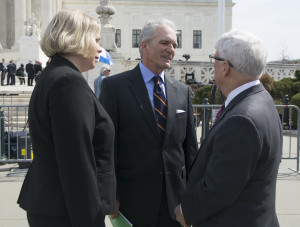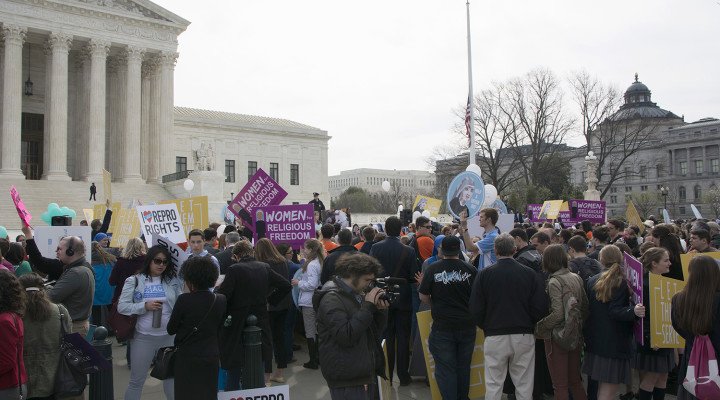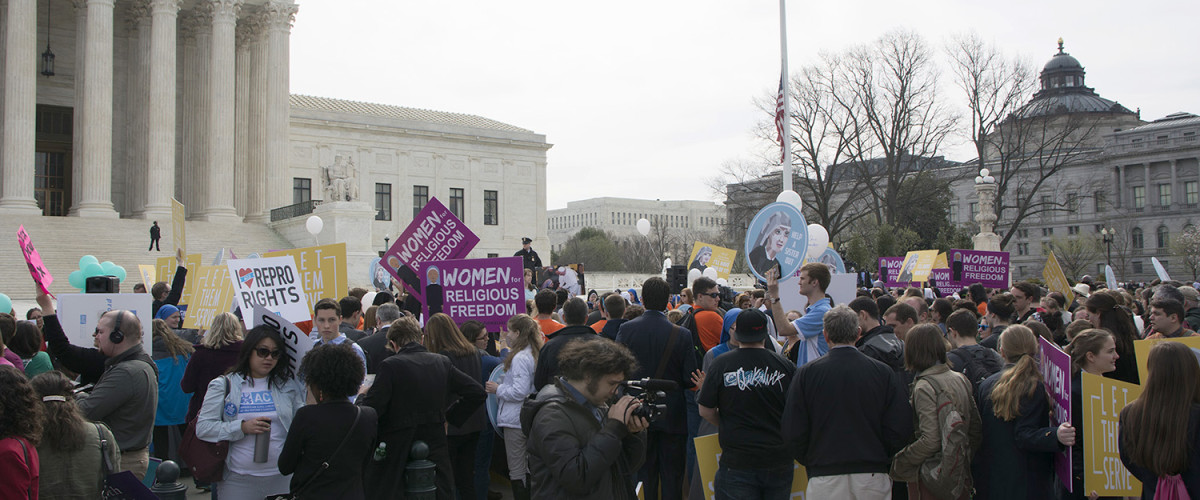The U.S. Supreme Court heard oral arguments March 23 in combined cases to decide whether mandatory coverage of contraceptives under Obamacare violates the religious liberty of faith-based organizations that serve the public and hire non-adherents as employees.
Charities including several Baptist colleges and a Catholic order called Little Sisters of the Poor claim that exercising an opt-out provision added by the Department of Health and Human Services to accommodate religious-liberty concerns makes them a party to providing emergency contraception and intrauterine devices that they believe cause abortion.
Russell Moore, head of the Southern Baptist Convention Ethics and Religious Liberty Commission and board member of the Becket Fund for Religious Liberty, the group defending the Little Sisters and others, said the government doesn’t need the help of religious employers to offer a full-range of contraceptive services through its own Health Insurance Marketplace.
“The government isn’t really arguing that it has no other choice,” Moore wrote in The Hill. “The government instead is arguing that the ministries misunderstand their own faith; that they can participate in its complicated contraceptive delivery scheme without disobeying God.”

Brent Walker and Jennifer Hawks of the Baptist Joint Committee talk after the hearing with former solicitor general Walter Dellinger. (BJC Photo/Jordan Edwards)
The Baptist Joint Committee for Religious Liberty, meanwhile, filed a brief in the case arguing that “all or nothing” demands by religious nonprofits objecting to the HHS accommodation in the end could wind up harming religious liberty.
“The religious organizations have been relieved of providing, paying for — or even appearing to approve of — services they find objectionable, but they aren’t taking ‘yes’ for an answer,” BJC Executive Director Brent Walker said after today’s hearing. “Their claims cannot thwart the government’s regulation of secular insurance companies to make sure those services are delivered.”
Douglas Laycock, the University of Virginia law professor who wrote the BJC brief, said on NPR that while the nonprofits might have “metaphysical objections” that matter to them religiously, “in any practical sense, this is the government’s plan.”
Laycock, who worked closely with the BJC to gain passage of the Religious Freedom Restoration Act in 1993, said this is the first time in 30 years he has ever filed a brief on the government’s side in a free exercise case.
Complicating the decision is the recent death of Associate Justice Antonin Scalia, a potential swing vote whose absence could result in a 4-4 tie, leaving in place lower court rulings that went against the religious groups.


